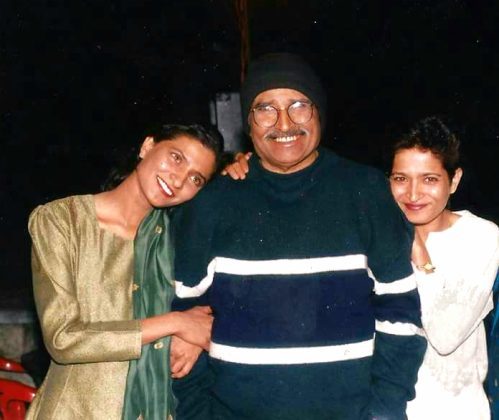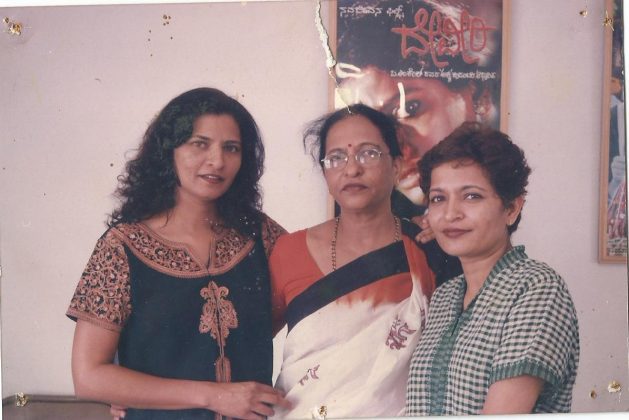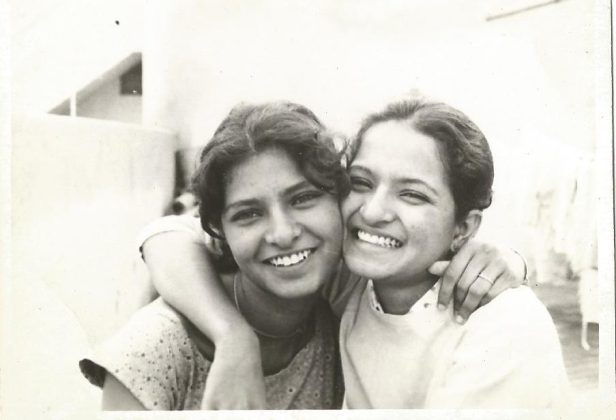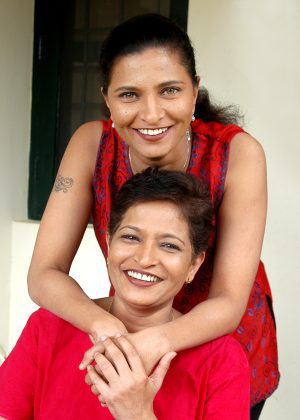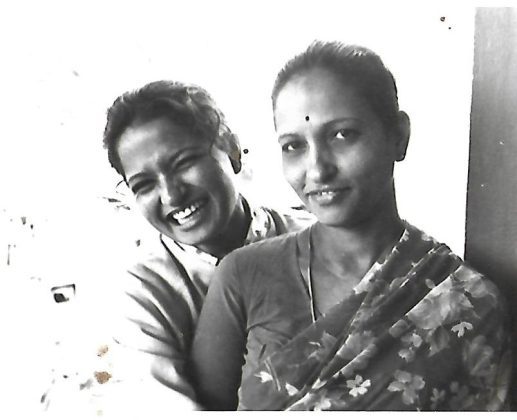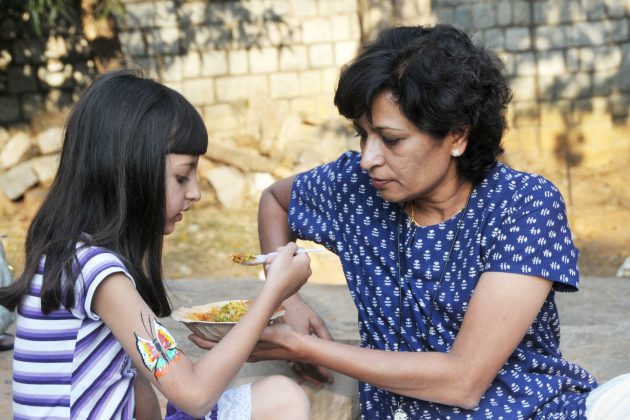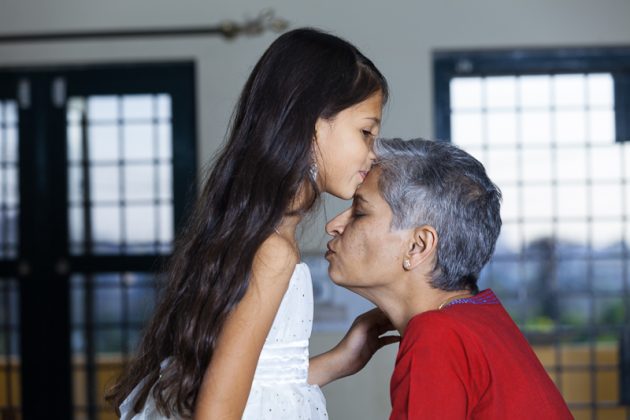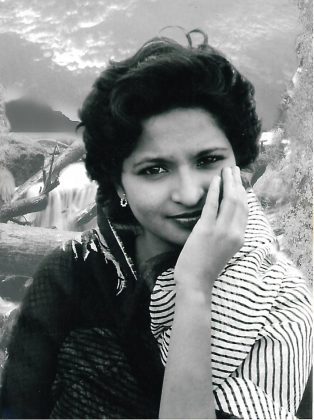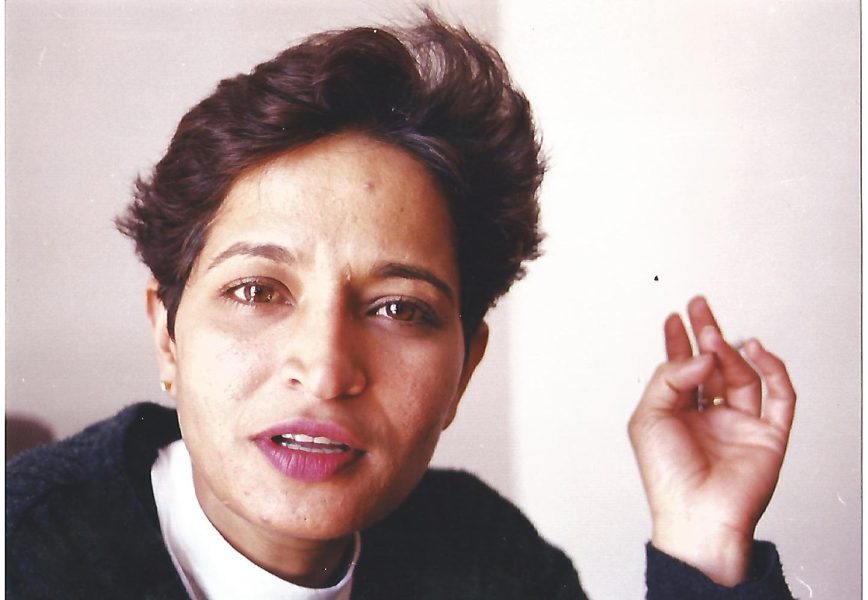
Exclusive: Kavitha on the making of new documentary on sister Gauri Lankesh
To make a film on Gauri is a really tough decision because she was more than a sister to me, says Kavitha Lankesh who has done a documentary on her.

September 5, 2017, was the darkest day in the life of noted Kannada filmmaker Kavitha Lankesh, as her sister Gauri Lankesh fell prey to the bullets of Hindu extremists.
Fondly referred to as Gauri, the journalist of high order and idealist who spoke out against the rise of right-wing Hindu extremism and who stood up for India’s marginalized community was found lying in a pool of blood on the doorsteps of her home in Rajarajeshwari Nagar in Bengaluru that day. She was shot in the head and chest by the gunmen.
The brutal assassination shook the conscience of the country, and the massive outpouring of grief and anger from across India and the world surprised Kavitha and her family. They never expected that Gauri would become a global icon of resistance.
Even after four-and-half years of assassination, Kavitha is still struggling to come to terms with the loss of her beloved sister. Despite being caught up in a long legal battle to get justice for Gauri, Kavitha has been able to eke out time to make a documentary on Gauri, commissioned by Free Press Unlimited of Netherlands.
Of the 300 filmmakers from across the globe who showed interest in making documentaries on journalists who got killed while discharging their duty, Kavitha is one of the four to be selected by the Free Press Unlimited of Netherlands.
Also read: Explained: Why SC’s latest order on Gauri Lankesh ‘killers’ is important
“Free Press Unlimited of Netherlands, which is initiating and enhancing independent quality journalism worldwide has selected four filmmakers including me to make a documentary on journalists, who were assassinated while reaching the truth to the society,” says Kavitha, trying hard to hide her emotions.
The documentary in a way is purgative therapy for Kavitha, who is mustering her strength, masking pain and anguish, just to narrate the story of Gauri, who stuck her neck out for the rights of the oppressed class, besides fighting the divisive forces in the country today.
She is also a bit relieved of late because of the breakthrough in the investigation in Gauri’s murder and the slew of arrests of fundamentalist activists across the country.
Kavitha, who is now doing the final touches to the documentary titled ‘We Are All Gauri’, which is to be submitted at her old Lankesh Patrike office in Basavanagudi, explains the idea behind her documentary in an extensive conversation with The Federal: “My proposal, based on extensive research and in-depth exploration of various facets of Gauri’s life, besides her contribution in protecting basic human rights and establishing a strong democracy as a journalist, was appealed to the committee of the Free Press Unlimited. I am fortunate enough to get chosen for that prestigious project.”
Showing a repository of footage on Gauri and hundreds of documents spread out on her desk, Kavitha said: “I shot the documentary in various parts of the country where Gauri worked as a journalist.”
Different from ‘Our Gauri’
In fact ‘We are all Gauri’ by Kavitha is not the first documentary on Gauri Lankesh. Earlier Pradeep KP, a Bengaluru-based media activist, popularly known as Pradeep Deepu of Pedestrian Pictures, had made a 67-minute documentary, ‘Our Gauri’, in September 2017.
‘Our Gauri’ is more than a personal tribute and it is about Gauri’s political journey envisaging, what she stood for, and her struggle for communal harmony until she breathed her last.
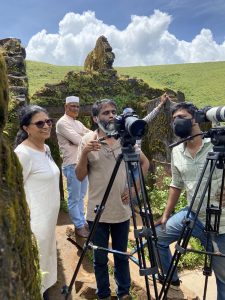
Deepu extensively used various footages he collected over 16 years in his documentary to make his film as a part of the history of Karnataka’s fight against right-wing communal forces. Deepu completed his film in just 20 days and saw more than 600 screenings across the country.
But ‘We are all Gauri’ is different from what Deepu did. “Deepu did his documentary in the heat of the moment. Mine is large in canvas and more intense. It speaks about radical, ideological and political positions of Gauri,” said Kavitha, noting that; “It involves the risk of being persecuted by the state and hounded by society. A documentary film on Gauri Lankesh presents such great risks.”
Journey of documentary
Recalling the time when she submitted her proposal to Free Press Unlimited of Netherlands in early 2020 on ‘Impunity for crimes against a journalist’, Kavitha said: “When I proposed documentary on Gauri, Esha (my daughter) was very much scared. She was totally petrified. The Hindu extremists who shot Gauri followed us for almost one and half years. They knew my house, office. Though we were scared, I told Esha: ‘No, I wanted to make this documentary’. But within me there were questions: ‘Should I do it or not? Can I? Because I was emotionally attached to Gauri, I finally stuck with my decision,” she says with a smile.
Of course, Kavitha is not new to documentary filmmaking. She started her visual career by making a series of documentaries. She has done over 50 documentaries, including those on Siddi tribe, Bannerghatta National Park and Ninasam, a cultural institution, which is fusing culture and activism, art practice and social commitment, individual creativity and collective responsibility over the past 70-years.
Kavitha who studied English literature and did a diploma course in advertising, has also made 10 films in her career two-decade, including Deveeri, Alemari, Bimba, Preethi Prema Pranaya, Malgudi Days (different from what Shankar Nag did), Tananam Tananam, Avva, Crazy Loka, Kariya Kanbitta, and Summer Holidays. She also served as a jury for many International Film Festivals.
Also read: Gang ‘involved in Gauri Lankesh murder’ charged in MM Kalburgi killing
“Actually I wanted to make a full-length movie on Gauri (in fact I still want to), but considering the cost involved, I dropped the idea. At this juncture I came across a call for proposal by Free Press Unlimited (FPU),” Kavitha said.
Despite getting the go-ahead from FPU, she couldn’t start the project because of the Covid-19 restrictions imposed in the wake of the pandemic.
“It took almost a year to script the documentary and the source needed footage. For over six months, we shot in various places following the footprints of Gauri,” Kavitha said, with a pale smile.
“Before submitting the proposal to Free Press Unlimited, I was apprehensive. I asked myself. Is it possible to come out of trauma and make a film on my sister, and her journalistic career, which is dotted with her activism till her assassination in 2017?”
Sister vs icon
“To make a film on Gauri is a really tough decision because she was more than a sister to me. She was my friend, mentor, conscience keeper. I am still struggling to come to terms with her exit from this mortal world. Making a film on her is just revisiting those traumatic days,” Kavitha states.
“But I decided to do the film just because she is a model to thousands of women and journalists in this country. I wanted to do this film just because her story needs to be heard. The world knew more about her only after her assassination.”
“But still some people are labelling Gauri according to their own perceptions, such as Naxalite, Maoist, Socialist, and Secularist. Some may be right and some wrong. I consciously decided against sensitizing her. When I interviewed people for the documentary, my request to them was to point out her faults too. My intention was to show her as humanly as possible,” she explained, taking deep breaths in between.
Did Kavitha face challenges because of her proximity to the subject (her sister Gauri)?
“Strong emotional waves blurred initially while poring over footages chronicling various facets of Gauri,” she said. “Slowly I developed a kind of immunity. Civil rights activist and journalist Teesta Setalvad took a look at the rough draft and footage and helped me in ascertaining what is wrong with the flow. This helped me in distancing myself from emotions. Throughout my narration, I followed Gauri’s ideals but I have taken a balanced stand,” she explained.
Kavitha faced technical problems too because some footages were as old as two decades. “It was colour correction that took much of our time as footages are in various formats, and transferring them was a big challenge,” she said.
Now the first rough cut is ready. A committee of film experts of The Movies That Matter Festival, which will be held in The Hague (which focuses on revealing documentaries that stir debates about human rights and the fight against injustice) is helping Kavitha fine-tune the film.
“I had an online meeting with them. They loved the rough-version and advised on fine-tuning certain things in view of reaching to a global audience,” she said expressing her gratitude for the international film fraternity,
When asked whether her film will be shown in India, Kavitha sounded optimistic. “People want to see it. Karnataka Chief Minister Basavaraj Bommai said he was a close friend of Gauri. He might allow screening in Karnataka. At least I hope so.”
(Muralidhara Khajane is a senior journalist, writer and translator specialising in cinema and culture)


